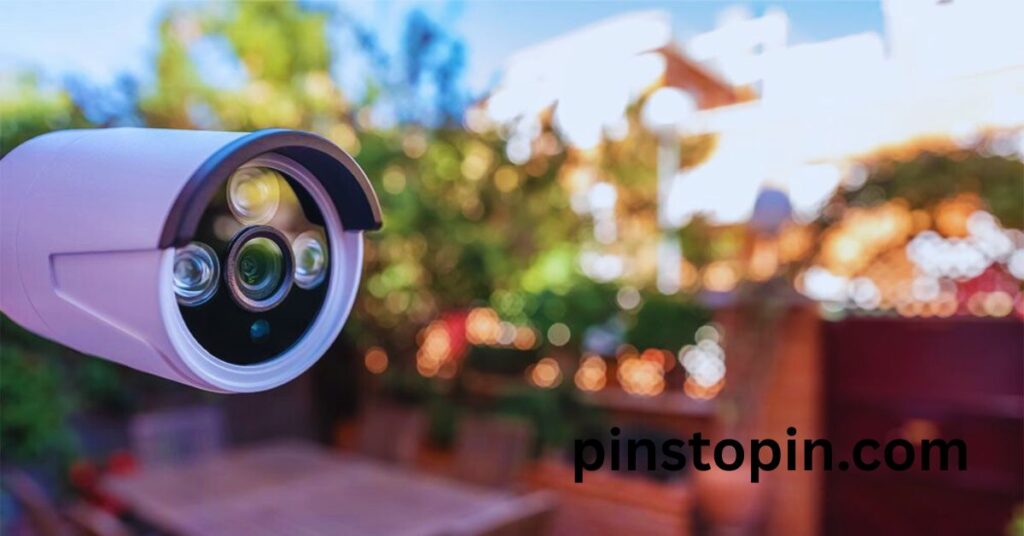If you’re a landlord thinking about installing security cameras in your rental properties, you need to understand the legal implications.
This article delves into crucial legal considerations landlords must remember when implementing security camera systems.
From informing tenants about surveillance to respecting their privacy rights, striking a balance between security and privacy is vital.
Stay informed about state laws, notify tenants properly, and place cameras strategically to enhance security while upholding tenant privacy.
Legal Requirements for Camera Placement
When installing security cameras as a landlord, it’s crucial to consider the legal requirements for camera placement to ensure compliance with privacy laws and tenant rights.
Apartment security camera laws dictate where cameras can be installed in rental properties. Do apartment complexes have cameras? While most apartment complexes have cameras in public areas like parking lots and hallways, placing cameras in private spaces without consent is illegal.
How to find a camera in your house: inspect common hiding spots like smoke alarms or light fixtures. Remember, tenants have rights regarding security camera installation within their rented property. Always review the laws and rental agreements to avoid breaching privacy.
Prioritize transparency, communication, and respect for privacy to maintain a positive tenant-landlord relationship.
Tenant Consent and Privacy Rights
To install security cameras in rental properties, landlords must obtain tenant consent and respect their privacy rights. It’s crucial to communicate openly with tenants about the purpose of the cameras, where they’ll be placed, and how the footage will be used. Prioritize transparency to build trust and maintain a positive relationship.
Remember that tenants have the right to privacy within their rented space, so any installation in private areas requires explicit consent. Be mindful of state laws and rental agreements to avoid infringing on tenants’ privacy rights. By proactively addressing privacy concerns and obtaining consent, you can ensure a harmonious living environment and demonstrate your commitment to respecting tenants’ privacy.
Compliance With State Laws
Ensure that your security camera installations comply with state laws to avoid legal complications. Each state has specific regulations regarding the use of surveillance cameras in rental properties. It’s crucial to research and understand these laws to ensure that your security camera setup is in compliance.
Some states may require landlords to inform tenants about the presence of cameras, while others may have restrictions on where cameras can be placed, such as prohibiting them in private areas like bathrooms or bedrooms. By adhering to state laws, you can protect yourself from potential fines or legal issues that may arise from non-compliance.
Stay informed and ensure that your security camera installations align with the legal requirements in your state.
Impact on Landlord-Tenant Relationships
Considering the impact on landlord-tenant relationships, it’s important to prioritize open communication and mutual respect when installing security cameras in rental properties. Maintaining a positive relationship with your tenants is crucial for a harmonious living environment.
Clearly communicate the reasons for installing security cameras, highlighting the focus on enhancing safety and security measures. Address any concerns or questions your tenants may have regarding privacy and monitoring. Respecting their rights and boundaries can help build trust and foster a sense of transparency.
Utilizing Advanced Surveillance Technology
When upgrading your security system, explore the benefits of incorporating high-definition video quality and cloud storage for enhanced surveillance capabilities. High-definition video provides clearer footage for better identification of individuals and incidents.
Cloud storage allows for secure storage of video footage off-site, reducing the risk of tampering or data loss. Additionally, advanced features like motion detection can alert you to potential security breaches in real-time.
Remote access through mobile apps enables you to monitor your property from anywhere, increasing convenience and responsiveness. Integrating these technological advancements into your surveillance system can significantly improve the effectiveness of your security measures and help ensure the safety of your rental property.
Conclusion
In conclusion, as a landlord, it’s essential to consider the legal implications of installing security cameras in your rental properties.
By understanding and complying with legal requirements for camera placement, obtaining tenant consent, respecting privacy rights, adhering to state laws, and maintaining positive relationships with your tenants, you can enhance property security while upholding tenant privacy.
Stay informed about surveillance technology advancements to ensure a safe and respectful living environment for all involved.
Also Read: Trapper Keeper: The Cool School Binder Everyone Loved

